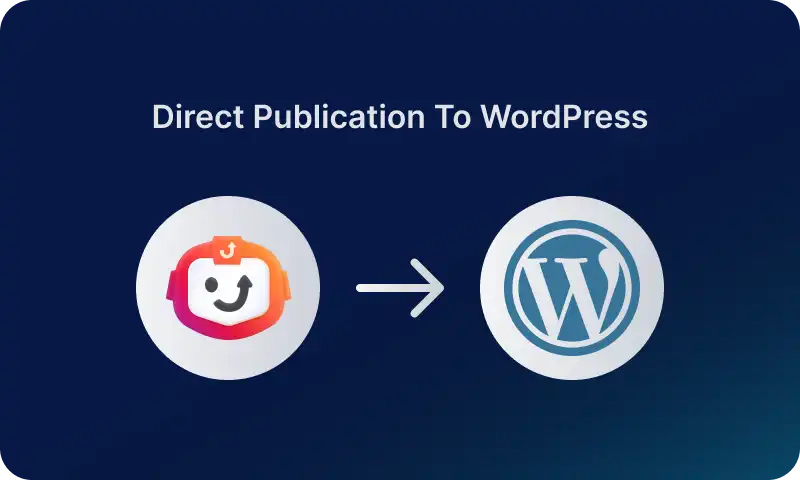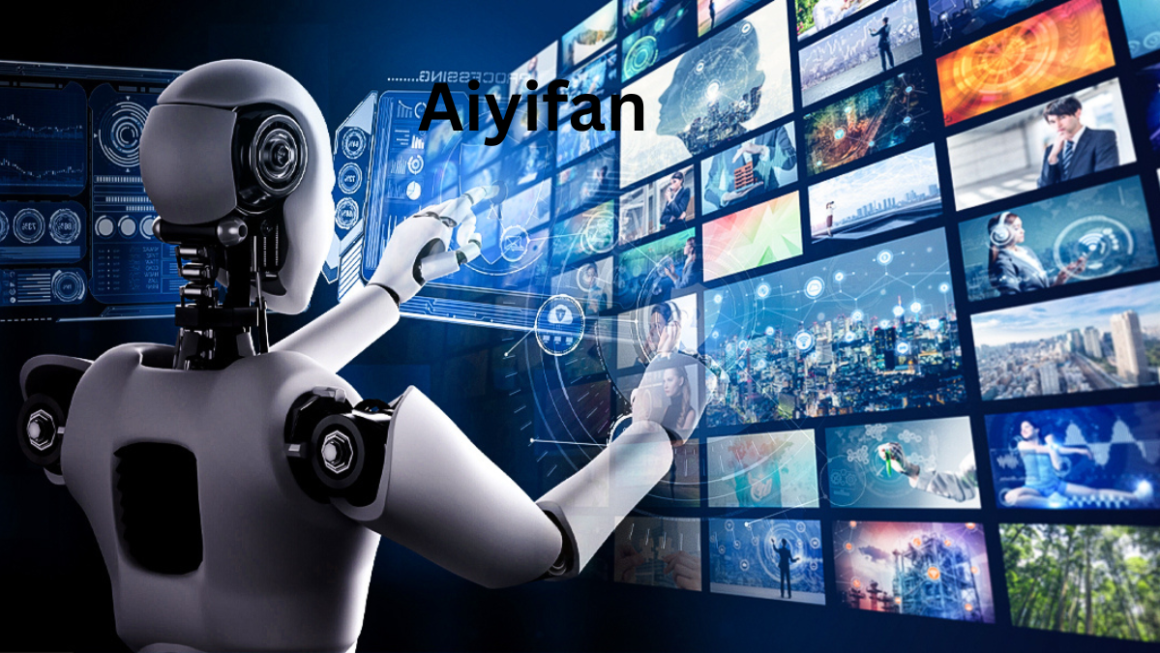In the evolving landscape of technology, one of the most intriguing developments is the emergence of longform AI. This innovative tool not only enhances the way we create content but also reshapes the overall writing process. As we delve deeper into the concept of longform AI, we will explore its implications, advantages, and how it can transform industries ranging from marketing to education.
Understanding Longform AI
What is Longform AI?

Longform AI refers to advanced artificial intelligence systems designed to generate extensive, coherent, and engaging written content. Unlike traditional AI models that might focus on short responses or simple text generation, longform AI excels in producing longer narratives, articles, and even books. By leveraging deep learning algorithms and vast datasets, these systems can analyze context, tone, and style, allowing them to mimic human-like writing more effectively.
This technology uses a variety of techniques, including natural language processing (NLP) and machine learning, to understand the intricacies of human language. As a result, AI can create content that is not only grammatically correct but also contextually relevant and engaging for the reader.
The Evolution of AI in Writing
The journey of AI in writing began with simple text generators that could produce short sentences or basic paragraphs. However, as technology advanced, the capabilities of AI systems expanded. Early models were limited in their understanding of context and nuance, often producing awkward or disjointed text.
With the introduction of more sophisticated algorithms and larger training datasets, AI began to produce more coherent and contextually appropriate content. Longform AI represents the pinnacle of this evolution, pushing the boundaries of what AI can achieve in content creation. It can generate articles, stories, and reports that reflect a deeper understanding of themes and narratives, making it a valuable tool for various industries.
Key Features of Longform AI
One of the standout features of longform AI is its ability to generate structured content. This means it can create articles with clear introductions, body sections, and conclusions, similar to how a human writer would approach a topic. Additionally, longform can adapt its writing style based on the desired tone, whether it’s formal, conversational, or persuasive.
Another key feature is its capability to conduct research. Longform AI can synthesize information from multiple sources, providing accurate data and citations within the generated content. This not only enhances the credibility of the writing but also saves time for content creators who would otherwise need to conduct extensive research.
Moreover, longform AI can analyze reader engagement metrics, allowing it to refine its output based on audience preferences. This adaptability makes AI an incredibly powerful tool for marketers, educators, and writers alike, enabling them to produce content that resonates with their target audience.
Applications of Longform AI
Content Marketing
One of the most prominent applications of longform AI is in content marketing. Businesses increasingly rely on high-quality content to engage customers and drive sales. AI can generate blog posts, white papers, and marketing materials that are not only informative but also optimized for search engines.
By creating well-structured and engaging content, businesses can improve their online visibility and attract more traffic to their websites. Longform AI can help marketers generate multiple pieces of content quickly, allowing them to maintain a consistent publishing schedule without sacrificing quality. This efficiency is particularly beneficial for businesses looking to scale their content efforts without overwhelming their teams.
Education and E-Learning
Longform AI is also making waves in the field of education. E-learning platforms can leverage this technology to create comprehensive course materials, study guides, and interactive content. By generating tailored educational resources, longform can address the diverse learning needs of students, making learning more accessible and engaging.
Additionally, longform AI can assist educators by providing them with lesson plans and assessments that are aligned with curriculum standards. This not only saves time for teachers but also ensures that students receive high-quality educational content that meets their learning objectives.
Journalism and Reporting
In the realm of journalism, longform AI is transforming the way news is reported and consumed. AI-generated articles can provide timely updates on current events, allowing news organizations to cover breaking stories quickly. While some may worry about the authenticity of AI-generated news, advancements in technology are making it possible for AI to produce accurate and reliable reports.
Moreover, longform AI can analyze large volumes of data to uncover trends and insights, aiding investigative journalism. By synthesizing information from various sources, AI can help journalists identify important narratives and inform the public about critical issues.
Benefits of Using Longform AI
Enhanced Efficiency
One of the most significant advantages of longform AI is its ability to enhance efficiency in content creation. Writers often face tight deadlines and the pressure to produce high-quality content consistently. Longform AI can streamline the writing process by generating initial drafts or providing inspiration for new topics, allowing human writers to focus on refining and editing the content.
This efficiency is particularly valuable in industries where timely content is crucial, such as marketing and journalism. By using longform AI to handle repetitive writing tasks, organizations can free up their creative teams to tackle more complex projects and strategic initiatives.
Cost-Effective Solution
Hiring professional writers or content creators can be expensive, especially for businesses that require a high volume of content. Longform offers a cost-effective solution by generating quality content at a fraction of the cost. This technology can significantly reduce the need for a large writing team, allowing organizations to allocate resources more effectively.
Additionally, longform AI can help businesses scale their content production without compromising quality. This is particularly beneficial for startups and small businesses that may have limited budgets but still want to establish a strong online presence.
Consistency and Quality Control
Maintaining a consistent brand voice and message is crucial for any organization. AI excels in producing content that aligns with specific guidelines and tone, ensuring that all written materials reflect the desired branding. This consistency helps build trust with the audience and reinforces the organization’s identity.
Furthermore, longform AI can assist with quality control by adhering to grammatical and stylistic standards. By reducing the likelihood of errors, organizations can present themselves more professionally, enhancing their credibility in the eyes of customers and clients.
Challenges and Considerations
Potential for Misuse
Despite its numerous benefits, longform AI also poses challenges. One significant concern is the potential for misuse. For instance, individuals could use AI-generated content to produce misleading or harmful information, raising ethical questions about accountability and responsibility.
To mitigate these risks, organizations must implement guidelines and best practices for using longform AI. Establishing clear policies on the ethical use of AI-generated content is essential for maintaining integrity and trust in communication.
Quality and Authenticity Concerns
While longform AI can produce coherent and engaging content, there are concerns about the authenticity of AI-generated writing. Some critics argue that relying too heavily on AI could lead to a lack of genuine voice and creativity. Content creators must strike a balance between leveraging AI technology and maintaining their unique perspectives and insights.
Human oversight is essential to ensure that AI-generated content aligns with organizational values and resonates with the target audience. Writers and editors should review AI-generated content to add personal touches and ensure authenticity.
The Human Element
While longform AI can enhance efficiency and productivity, it cannot replace the human element in writing. Creativity, emotional intelligence, and personal experiences are irreplaceable qualities that human writers bring to the table. AI can assist in generating ideas and drafts, but the final output should always reflect the writer’s unique voice and perspective.
Organizations must recognize the importance of human creativity and ensure that longform AI is used as a tool to complement, rather than replace, the human touch in writing. This collaboration between AI and human writers can lead to more impactful and engaging content.
The Future of Longform AI
Advancements in Technology
The future of longform AI is promising, with ongoing advancements in natural language processing and machine learning. As technology continues to evolve, we can expect even more sophisticated AI systems capable of understanding context, tone, and style with greater precision. This will enable longform AI to produce content that is not only coherent but also resonates deeply with readers.
Moreover, future iterations of longform AI may incorporate more interactive elements, allowing for dynamic content generation based on user input. This adaptability could revolutionize how we create and consume content, providing personalized experiences for readers.
Integration with Other Technologies
Longform AI will likely be integrated with other emerging technologies, such as voice recognition and augmented reality. This integration could lead to new forms of storytelling and content delivery, enhancing the overall experience for consumers.
For example, imagine an AI-generated interactive story that responds to a reader’s choices or preferences. This level of interactivity could change the landscape of content creation, making it more engaging and immersive.
Expanding Applications Across Industries
As longform AI continues to evolve, its applications will expand across various industries beyond content marketing and education. Fields such as healthcare, legal, and scientific research could benefit from AI-generated reports, summaries, and analysis. By streamlining communication and enhancing access to information, longform AI has the potential to transform how professionals in these fields operate.
Moreover, longform AI could facilitate collaboration between experts, enabling them to share knowledge and insights more effectively. This collaborative approach could lead to innovations and advancements across multiple domains.
Conclusion
Longform AI represents a groundbreaking advancement in content creation, offering a wealth of possibilities for businesses, educators, and writers alike. As technology continues to evolve, the potential applications of longform AI are vast, promising to enhance efficiency, quality, and engagement in content production.
However, while embracing the benefits of longform AI, it is essential to remain mindful of the challenges it presents. Ethical considerations, authenticity, and the irreplaceable human element must be at the forefront of discussions surrounding the use of AI in writing.
Ultimately, longform AI is not just about automating content creation; it’s about enhancing the creative process and empowering individuals to tell their stories in innovative ways. As we navigate this exciting frontier, the collaboration between AI and human creativity will shape the future of content creation, paving the way for new opportunities and experiences.



